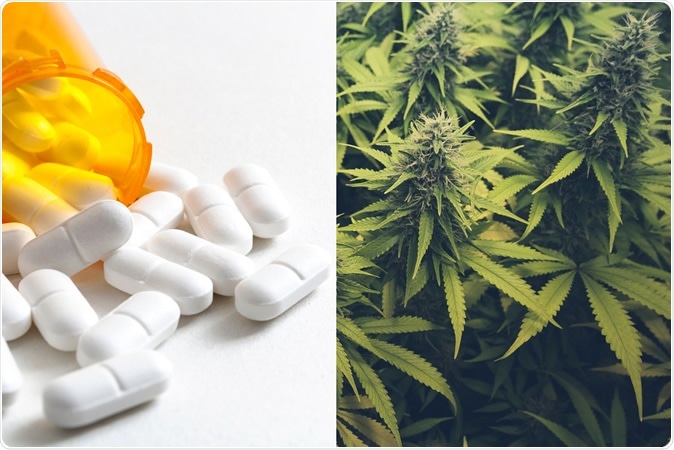Opioid misuse has become a significant public health problem. Despite efforts to control its use, opioid is still the most widely prescribed class of medicines. Now, a new study shows that when adults mix prescription opioids for pain with marijuana or cannabis, they report higher rates of anxiety and depression symptoms.

Mixing cannabis with opioids for pain report higher anxiety, depression
Opioids are often prescribed to treat chronic and severe pain, despite the presence of risks. Cannabis or marijuana, on the other hand, is another substance that has been recently used to manage chronic pain. The use of these two substances manifests poorer outcomes than when the only one is used, but little is still known about the impact of opioid-cannabis co-use.
“Given the fact that cannabis potentially has analgesic properties, some people are turning to it to manage their pain potentially," Andrew Rogers said.
Rogers focuses on the use of opioid use on chronic pain, determining the underlying psychological mechanisms, including emotion regulation, anxiety sensitivity, and pain-related anxiety.
Some patients may want chronic pain to stop and disappear. Hence, they may resort to co-using of two pain relievers, such as opioid and cannabis. The researchers recommend that thorough assessment in chronic pain treatments should be done.
“These findings highlight a vulnerable population of polysubstance users with chronic pain, and indicates the need for more comprehensive assessment and treatment of chronic pain,” the researchers concluded in the study.
Cannabis use for chronic pain
To land to the findings, the researchers at the University of Houston examined 450 adults across the United States who experienced chronic pain (moderate to severe) for more than three months. Aside from that, they examined the use of opioids alone, compared to the use of both opioid and cannabis among adults with chronic pain on mental health, substance use outcomes, and pain.
They found that there are heightened and increased anxiety and depression symptoms in people who use cannabis on top of using prescription opioids. Also, the results showed that, compared to opioid use alone, cannabis and opioid co-use was linked to heightened tobacco, cocaine, alcohol, and sedative use problems, but not in pain experience.
"There's been a lot of buzz that maybe cannabis is the new or safer alternative to opioid, so that's something we wanted to investigate," Rogers explained.
"The findings highlight a vulnerable population of polysubstance users with chronic pain and indicate the need for more comprehensive assessment and treatment of chronic pain," he added.
Cannabis for chronic pain
Cannabis as a pain reliever for medical and nonmedical purposes, has been increasing among people, especially older adults. This is because of current levels and dangers of prescription opioid use in the country warrant investigation of harm-reducing alternatives, such as cannabis.
People can treat chronic pain with many medications, but doctors commonly prescribe opioids, which work by attaching themselves to nerve cell receptors to block pain signals from traveling to the brain.
Opioids are very effective in relieving pain, especially that which is constant or chronic, but it has many downsides. For instance, it increases the risk of addiction. More than 130 people in the United States die of an opioid overdose every day.
The opioid crisis is so severe that the government dubbed it as a public health crisis.
In recent years, cannabis has been used for chronic pain, among many other medical uses. Many experts suggest that cannabis can be a solution for the opioid epidemic; however, using both substances may not benefit people with chronic pain. Instead, these may cause the appearance of anxiety and depression symptoms.
Journal reference:
Rogers, A., Bakhshaie, J., Buckner, J., Orr, Michael, Paulus, D., Ditre, J., and Zvolensky, M. (2019). Opioid and Cannabis Co-Use among Adults With Chronic Pain: Relations to Substance Misuse, Mental Health, and Pain Experience. Journal of Addiction Medicine. https://insights.ovid.com/crossref?an=01271255-201908000-00007